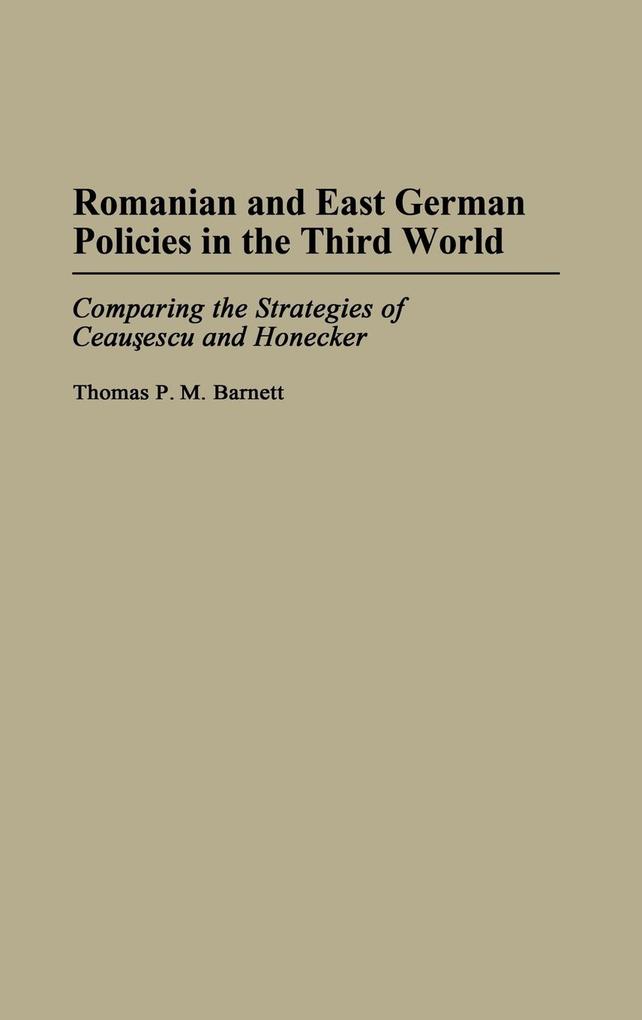
Zustellung: Mi, 16.07. - Sa, 19.07.
Versand in 7 Tagen
VersandkostenfreiThis book is a unique comparison of the Third World policies of the two East European regimes that were most active in the South during the 1970s and 1980s. The study examines why Romania's and East Germany's high activity levels in the South cannot be explained away as mere surrogacy for Moscow, and shows that those attempts represented the particular agendas of Honecker and Ceausescu in their efforts to alter their ties with the Soviet Union.
Barnett concludes that Romania and East Germany saw opportunities in the Third World in the 1970s to forge strong diplomatic and security profiles within the Warsaw Pact's overall presence. Romania sought to lessen its economic and ideological dependence on the Soviet Union by expanding its trade ties and political relations with the Third World. In the case of East Germany, detente opened up new opportunities for relations with West Germany that were both lucrative in terms of trade and dangerous in terms of ideological pollution. Scholars of the Soviet bloc will find this book of interest.
Barnett concludes that Romania and East Germany saw opportunities in the Third World in the 1970s to forge strong diplomatic and security profiles within the Warsaw Pact's overall presence. Romania sought to lessen its economic and ideological dependence on the Soviet Union by expanding its trade ties and political relations with the Third World. In the case of East Germany, detente opened up new opportunities for relations with West Germany that were both lucrative in terms of trade and dangerous in terms of ideological pollution. Scholars of the Soviet bloc will find this book of interest.
Inhaltsverzeichnis
Preface
Introduction
Domestic Roots of Romanian and East German Policy in the Third World
The Interplay of Soviet and East European Policies in the Third World
Romania and the Third World, 1972-89: Ceau, sescu's Vision of the "Socialist Developing State"
East Germany and the Third World, 1969-89: Carving Out an Identity at Moscow's Side
Comparing the Third World Strategies of Honecker and Ceau, sescu
Appendix
Selected Bibliography
Index
Introduction
Domestic Roots of Romanian and East German Policy in the Third World
The Interplay of Soviet and East European Policies in the Third World
Romania and the Third World, 1972-89: Ceau, sescu's Vision of the "Socialist Developing State"
East Germany and the Third World, 1969-89: Carving Out an Identity at Moscow's Side
Comparing the Third World Strategies of Honecker and Ceau, sescu
Appendix
Selected Bibliography
Index
Produktdetails
Erscheinungsdatum
17. September 1992
Sprache
englisch
Seitenanzahl
198
Autor/Autorin
Thomas P. M. Barnett
Verlag/Hersteller
Produktart
gebunden
Gewicht
467 g
Größe (L/B/H)
240/161/15 mm
ISBN
9780275941178
Entdecken Sie mehr
Bewertungen
0 Bewertungen
Es wurden noch keine Bewertungen abgegeben. Schreiben Sie die erste Bewertung zu "Romanian and East German Policies in the Third World" und helfen Sie damit anderen bei der Kaufentscheidung.







